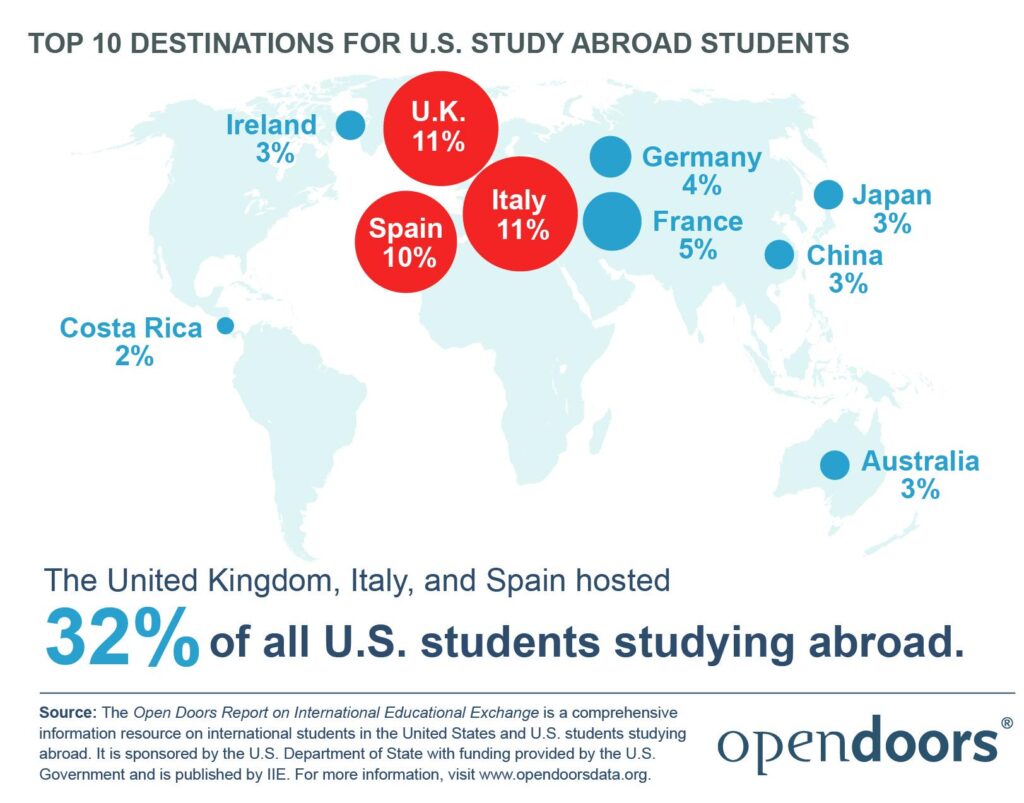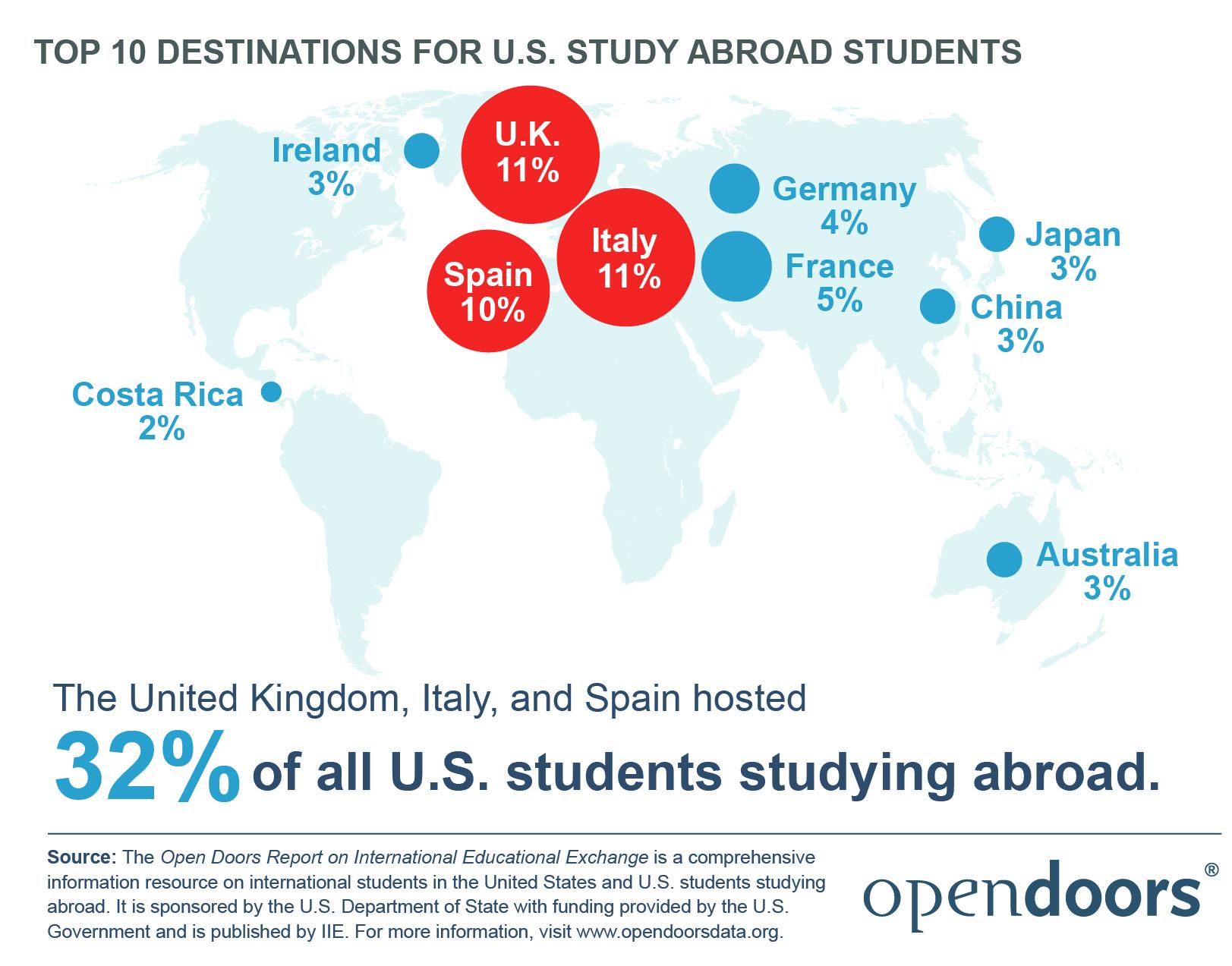Now Reading: Impact of Study Abroad on Mental Health
-
01
Impact of Study Abroad on Mental Health
Impact of Study Abroad on Mental Health

Exploring Horizons: the Impact of Study Abroad on Mental Health
In an increasingly interconnected world, the allure of studying abroad has grown irresistible for many students seeking to expand their academic knowlege and personal horizons. Venturing into unknown territories, immersing oneself in diverse cultures, and forging global connections offer thrilling opportunities for growth. Yet, while the benefits of such experiences are frequently enough celebrated—academic enhancement, career prospects, and personal development—the less-discussed but equally significant aspect is their impact on mental health. As young scholars navigate the complexities of cultural adaptation, homesickness, and academic pressures, the intersection of travel, independence, and emotional well-being emerges as a crucial area of exploration. This article delves into the multifaceted relationship between study abroad programs and mental health, shedding light on both the challenges and transformative experiences that shape psychological resilience and the overall well-being of students. Through firsthand accounts and expert insights, we aim to uncover how traversing the globe can serve as a catalyst for emotional growth, self-discovery, and, at times, a daunting reflection of the inner self.
Exploring New Horizons: The Psychological Benefits of Cultural Immersion
Cultural immersion offers a remarkable opportunity for personal growth and enhanced mental well-being. when individuals step outside their comfort zones and engage with different cultures, they often experience a sense of freedom and adventure that can alleviate anxiety and depression. this exposure to diverse lifestyles helps foster resilience, as students learn to adapt to new environments and navigate challenges that arise in unfamiliar settings. Furthermore,the opportunity to forge connections with individuals from varying backgrounds enriches social skills and promotes a sense of belonging,contributing significantly to emotional health.
Partaking in a study abroad program also leads to a boost in self-esteem and confidence. As students tackle language barriers and cultural differences,they gain a deeper appreciation of their own identity while developing empathy toward others.Key psychological benefits include:
- Enhanced creativity: Engaging with new ideas and perspectives can spark innovation and personal insights.
- Improved problem-solving skills: Facing and resolving everyday challenges in a foreign setting sharpens critical thinking capabilities.
- Stress reduction: A break from familiar routines and daily pressures allows for mental rejuvenation and clarity.

Navigating Challenges: Addressing Mental Health Concerns While Studying Abroad
Studying abroad is an exhilarating journey, but it often comes with its own set of mental health challenges. The excitement of exploring new cultures and meeting diverse people can quickly be overshadowed by feelings of loneliness, homesickness, and academic pressure. It’s vital for students to acknowledge these feelings and take proactive steps to address them. Engaging in regular self-care practices, such as meditation, exercise, and maintaining a routine, can provide a solid foundation for mental wellness. Moreover,it’s essential to stay connected with family and friends back home through video calls or social media,ensuring that the support system remains intact despite the geographical distance.
Additionally, students should not hesitate to seek support from university mental health resources, as many institutions offer counseling services tailored for international students. Building a community can also significantly enhance emotional well-being; joining clubs, attending social events, or participating in group activities can foster a sense of belonging.Consider these practical tips for maintaining good mental health while navigating the challenges of studying abroad:
- engage with local culture – immerse yourself in your host country’s traditions and activities.
- Establish a support network – Connect with fellow students or local friends.
- Maintain healthy habits – Prioritize sleep, nutrition, and exercise.
- Practice mindfulness – Incorporate meditation or relaxation techniques into your routine.
- Seek professional help if needed – Don’t hesitate to use campus mental health services.

Building Resilience: Skills Developed Through International Experiences
Embarking on an international study adventure offers a unique opportunity to cultivate essential skills that bolster emotional and mental resilience. Immersed in a different culture, students quickly learn to navigate unfamiliar environments and routines, which sharpens their adaptability. The ability to remain flexible in the face of unexpected challenges breeds a sense of independence and confidence. This experience enables students to develop critical thinking skills as they confront diverse viewpoints and problem-solving scenarios that differ from their own. Among other key skills, this journey encourages:
- Empathy: Connecting with people from various backgrounds fosters a deeper understanding and compassion for others.
- Communication: Navigating new languages and cultural norms enhances interpersonal skills.
- Self-awareness: Reflecting on one’s values and beliefs in a foreign context promotes personal growth.
Additionally, the challenges of living abroad help students to enhance their coping strategies. This not only contributes to emotional growth but also fortifies mental health by instilling a greater sense of purpose and achievement. Faced with the hurdles of homesickness or cultural shock, students often find support in new friendships, which can further enrich their emotional toolkit. as a result, students can employ various techniques to manage stress effectively, such as:
| Technique | Benefits |
|---|---|
| Mindfulness Practices | Promotes relaxation and reduces anxiety. |
| Social Engagement | Improves emotional support networks. |
| Goal Setting | Fosters motivation and a sense of achievement. |

Fostering Support Networks: Strategies for Maintaining well-Being Abroad
Building a robust support network while studying abroad can significantly enhance mental well-being and ease the feeling of isolation. Engaging with both local and international peers fosters meaningful connections that cultivate a sense of belonging. Consider these strategies to nurture your support system:
- Join Clubs and Organizations: Participate in university groups that align with your interests—be it cultural, academic, or recreational. This is a great way to meet people and share experiences.
- Leverage Social Media: Use platforms to connect with fellow students, search for local events, or find mental health resources that resonate with your needs.
- Explore Local Communities: Attend community events or volunteer opportunities to immerse yourself in the local culture and meet new friends outside your academic circle.
It’s essential to remain proactive about prioritizing your mental health. Regular check-ins with your support network can provide an invaluable source of encouragement.Here are some considerations to help maintain your well-being:
| strategy | Action Steps |
|---|---|
| Establish Regular Meetups | Schedule weekly gatherings, whether a study session or casual hangout, to maintain connections. |
| Seek Professional Guidance | Find local counseling services or campus resources for occasional support if needed. |
| Practice Open Communication | Share feelings and experiences candidly with trusted friends for mutual support. |
Closing Remarks
As we close the chapter on the multifaceted interplay between study abroad experiences and mental health, it is indeed clear that the journey extends far beyond the classroom walls.While encountering new cultures can catalyze personal growth and broaden perspectives, it also brings forth challenges that can weigh heavily on one’s mental well-being. The intricate tapestry woven from academic pursuits, social connections, and the quest for self-discovery illustrates that studying abroad is as much an emotional expedition as it is an educational one.
Ultimately, the impact on mental health is deeply personal and varied, shaped by individual circumstances and the support systems in place. As students consider embarking on this transformative journey, it’s essential to carry the lessons learned about resilience, adaptability, and seeking help. In navigating both the highs and lows of this unique experience, the quest for balance becomes paramount—a reminder that amid exploration and adventure, mental well-being deserves equal attention and care. So, as you stand on the brink of your own international odyssey, remember: it’s not just the places you’ll go that shape you, but the way you grow along the way.


























